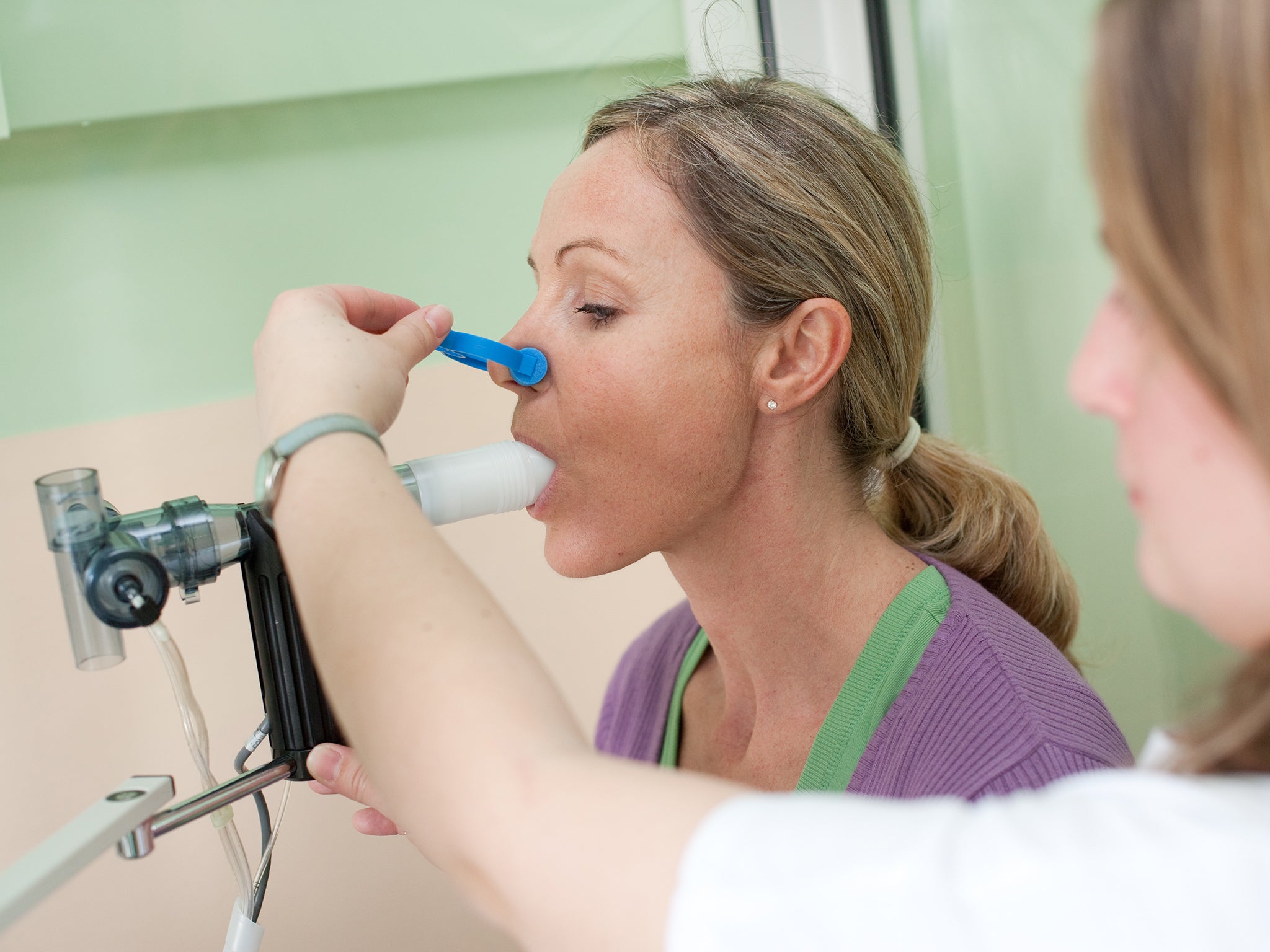Breath test that could revolutionise cancer diagnosis to be trialled in Britain
'The concept of providing a whole-body snapshot in a completely non-invasive way is very powerful and could reduce harm by sparing patients from more invasive tests that they don't need'

A breathalyser test that could revolutionise cancer diagnosis is being trialled in the UK.
The Breath Biopsy device is designed to detect cancer hallmarks in molecules exhaled by patients. Scientists hope it will lead to a simpler, cheaper method of spotting cancers at an early stage, when they are more likely to respond to treatment.
The cancer breathalyser has the potential to save thousands of lives and save millions of pounds in healthcare costs, its developers claim.
The two-year trial, taking place at Addenbrooke’s Hospital in Cambridge, is recruiting 1,500 participants including healthy individuals as well as cancer patients.
Initially patients with suspected oesophageal and stomach cancers will be asked to try the test. Later the trial will be extended to include prostate, kidney, bladder, liver and pancreatic cancers.
Lead investigator Professor Rebecca Fitzgerald, from the Cancer Research UK Cambridge Centre, said: “We urgently need to develop new tools, like this breath test, which could help to detect and diagnose cancer earlier, giving patients the best chance of surviving their disease. Through this clinical trial we hope to find signatures in breath needed to detect cancers earlier. It’s the crucial next step in developing this technology.”
The PAN Cancer Trial For Early Detection Of Cancer In Breath is being run by Cancer Research UK in conjunction with British company Owlstone Medical, which invented the test.
Participants will be asked to breathe into the cancer breathalyser for 10 minutes. Airborne molecules called volatile organic compounds (VOCs) collected by the test will then be sent to a laboratory in Cambridge for analysis.
Cells in the body produce a range of VOCs as part of their normal metabolic processes. The molecules find their way into the lungs and emerge in the breath.
The idea behind the test is that cancer can cause recognisable alterations in the pattern of VOCs. If the technology is shown to be reliable and accurate, cancer breathalysers could become common sight in GP surgeries.
Billy Boyle, co-founder and chief executive of Owlstone Medical, said: “There is increasing potential for breath-based tests to aid diagnosis, sitting alongside blood and urine tests in an effort to help doctors detect and treat disease. The concept of providing a whole-body snapshot in a completely non-invasive way is very powerful and could reduce harm by sparing patients from more invasive tests that they don’t need.
“Our technology has proven to be extremely effective at detecting VOCs in the breath, and we are proud to be working with Cancer Research UK as we look to apply it towards the incredibly important area of detecting early-stage disease in a range of cancers in patients.”
Almost half of cancers are diagnosed at a late stage in England, according to government figures.
Late diagnosis is one of the main reasons why only 12 per cent of oesophageal cancer patients survive as long as 10 years.

Trial participant Rebecca Coldrick, 54, from Cambridge, was diagnosed in her early 30s with Barrett’s oesophagus, a condition linked to acid reflux that can lead to oesophageal cancer.
She said: “About 20 years ago I developed acid reflux, and I began to live on Gaviscon and other indigestion remedies. I went to the doctors and shortly after I was diagnosed with Barrett’s. Every two years I have an endoscopy to monitor my condition. I think the more research done to monitor conditions like mine and the kinder the detection tests developed, the better.”
Dr David Crosby, head of early detection research at Cancer Research UK, said: “Technologies such as this breath test have the potential to revolutionise the way we detect and diagnose cancer in the future.”
Press Association
Join our commenting forum
Join thought-provoking conversations, follow other Independent readers and see their replies
Comments
Bookmark popover
Removed from bookmarks